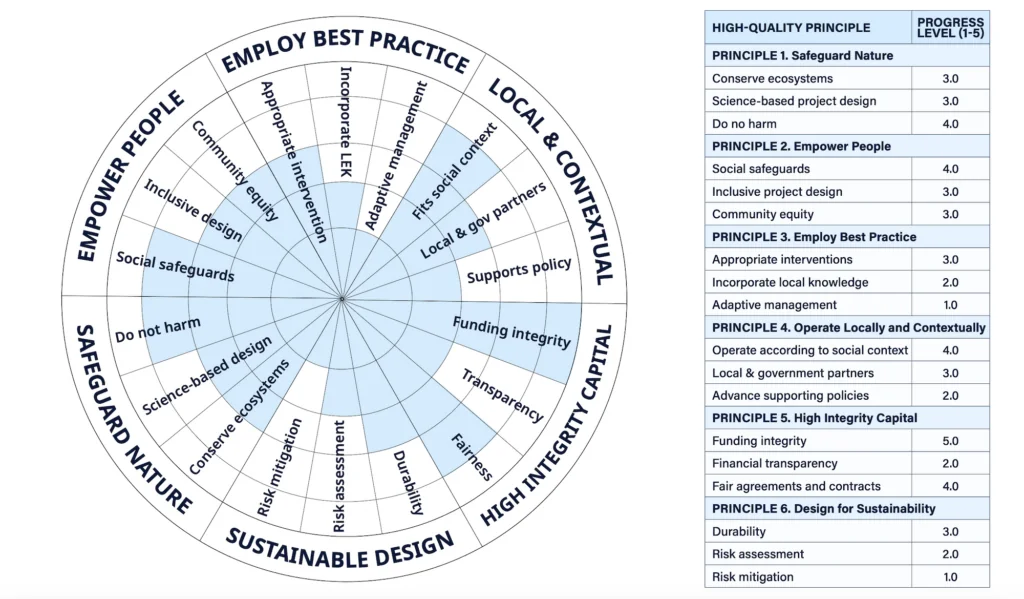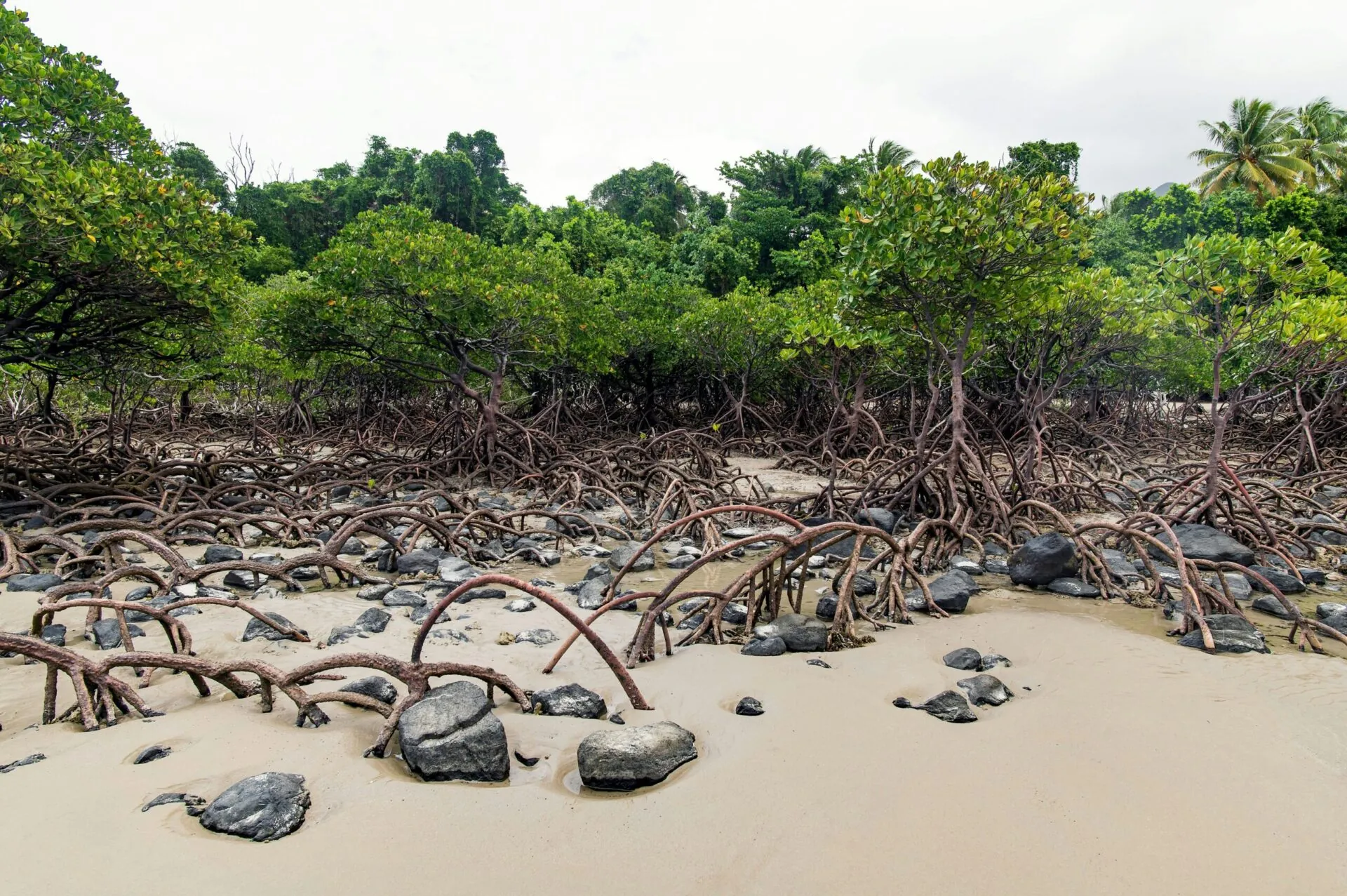Conservation International, along with ORRAA and other partners, officially launched the High-Quality Blue Carbon (HQBC) Practitioners Guide at COP16 in Cali, Colombia. As the first resource linking market definitions of high-quality project development and financing with on-the-ground activities, this Guide – also available in Bahasa Indonesia, French, Portuguese and Spanish – is designed to create a shared understanding of “high quality” in blue carbon projects, helping to foster more transparent and effective collaboration between project developers, investors, and other stakeholders.
Building on earlier resources, including the High-Quality Blue Carbon Principles and Guidance (launched at UNFCCC COP27 in 2023) and the Early Adopters Kit (released at the UN Ocean Decade Conference in April 2024), the guide reinforces the importance of safeguards for both people and nature. The guide’s launch is a timely contribution to implementing the Kunming-Montreal Global Biodiversity Framework (GBF), emphasising nature-based solutions and advancing global biodiversity and climate goals. The HQBC Practitioners Guide will help drive practical applications of these global targets, ensuring that blue carbon projects align with the commitments made under the GBF.
This comprehensive tool supports any blue carbon project, whether it generates carbon credits or not, offering more than fifty carefully curated resources tailored to a wide variety of settings. It empowers practitioners to deliver stronger, more effective blue carbon initiatives that contribute to climate resilience, biodiversity protection, and sustainable development. It informs due diligence processes for investors and buyers, and provides a clear pathway for all blue carbon projects to achieve high-quality standards.
Project developers, buyers, investors and funders of blue carbon projects have quickly adopted the HQBC Principles and Guidance. However, applying them in practice required building an understanding of what high-quality looks like across a range of ecosystems, project settings and activity types.
Introducing the HQBC Progress Wheel Tool
The guide was accompanied by the release of the HQBC Progress Wheel, a tool designed to help project managers and funders integrate the HQBC Principles and Guidance into project design and management. Adapted from the Society for Ecological Restoration’s “Recovery Wheel”, this tool serves two purposes:
- Adaptive management and planning: It enables users to track progress towards high-quality outcomes from project inception, identify areas for change, and guide decisions.
- Reporting and communication: The tool provides a visual representation of progress, making it easier for funders and stakeholders to assess how projects align with high-quality standards.
With these resources available, we reinforce our invitation to all parties involved in blue carbon projects to:
- Demonstrate leadership by adopting and adhering to the Principles and Guidance.
- Develop an action plan for using the HQBC Principles and Guidance, and the HQBC Practitioners Guide.
- Promote these resources and promote being an early adopter.
- Share how you are using the HQBC Principles and Guidance to amplify your impact.
- Harness and contribute your ‘superpowers’ to progressing high-quality blue carbon (e.g. philanthropy, communications, purchasing power, advocacy, networks, etc.)
For anyone involved in the blue carbon space, the HQBC Practitioners Guide serves as a key tool to elevate project outcomes and strengthen accountability, setting a new benchmark for high-quality, scalable blue carbon initiatives.

Adapted from: McDonald T., Jonson J. and Dixon K. W. (eds) (2016) National Standards for the Practice of Ecological Restoration in Australia. Restoration Ecology S1: 1-340. Modified with permission for the High Quality Blue Carbon Principles by Mark Beeston 2024.

